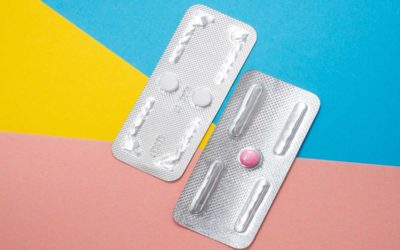Regardless of the method you use to terminate a pregnancy, be it a surgical or pharmacological abortion, it is important to take care of yourself after the procedure. Abortions performed under the care of a licensed medical professional within a clinic are generally safe procedures with few complications. However, many women will experience some side effects, such as abdominal cramps, mild vaginal bleeding, nausea, breast pain, and fatigue.
Bleeding after IVE
Many women will experience bleeding after an abortion. During this period, you may experience light or heavy bleeding days. It is also normal to have blood clots, although large clots (the size of a golf ball) for more than two hours would not be normal.
Constant heavy bleeding is defined as using two or more large compresses in one hour, or bleeding heavily for 12 hours or more. This can be a sign of complications, especially if the blood is bright red after the first 24 hours after the abortion, compared to a darker red, or if it is accompanied by persistent shooting pain.
Sex after IVE
After both types of abortion procedures, it is generally recommended to wait about two weeks before having sex or inserting something vaginally. This reduces the risk of infection and is an important part of post-abortion care.
If you have unprotected sex after an abortion, call your doctor or clinic and ask what steps you can take to prevent pregnancy.
If you suddenly feel sharp pain during intercourse after an abortion, call your clinic for advice. If they think it’s not an emergency, they can still schedule it for follow-up.
Side effects
Normal side effects after an abortion include:
- abdominal cramps
- slight vaginal bleeding
- nausea and vomiting
- sinus pain
- fatigue
While medical and surgical abortions are generally considered safe, they can sometimes lead to complications. One of the most common complications is infection. This can be caused by an incomplete abortion or vaginal exposure to bacteria, such as having sex too soon. You can reduce the risk of infection by expecting to have sex and using compresses instead of tampons.
Symptoms of infections include strong-smelling vaginal discharge, fever, and severe pelvic pain. Untreated infections can lead to pelvic inflammatory disease, so call your doctor for treatment as soon as you notice symptoms.
Tips for care after IVE
After your abortion, your doctor or clinic will provide specific instructions for aftercare. Sometimes this is not enough to reduce unpleasant side effects.
To reduce side effects and increase your comfort after an abortion, you can:
- Use heating pads, which can alleviate cramps.
- Stay hydrated, especially if you have vomiting or diarrhea.
- Have a support system, as some women experience emotional changes due to the drastic change in hormones.
- If possible, plan to stay for a day or two, so you can rest and recover in the comfort of your home.
- Take pain relievers to reduce cramps and pain.
- Massage your abdomen where you feel the cramps.
- Wear a tight bra to relieve breast tenderness.




